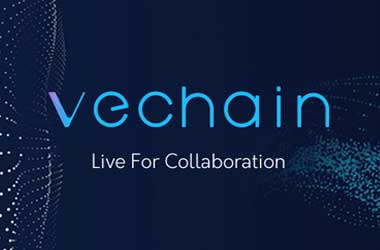 Ethiopia is the latest African country to join the blockchain bandwagon. On May 3, the country’s Ministry of Science and Technology signed a memorandum of understanding (MOU) with Charles Hoskinson, CEO of Cardano (ADA) to promote the use of Cardano’s blockchain in the domestic agriculture industry. Hoskinson also tweeted that the agreement will also focus on training developers in the country to use blockchain.
Ethiopia is the latest African country to join the blockchain bandwagon. On May 3, the country’s Ministry of Science and Technology signed a memorandum of understanding (MOU) with Charles Hoskinson, CEO of Cardano (ADA) to promote the use of Cardano’s blockchain in the domestic agriculture industry. Hoskinson also tweeted that the agreement will also focus on training developers in the country to use blockchain.
Cardano is trying to pit itself against Ethereum by supporting smart contracts and decentralized applications. However, the project is far from completion. At the Eurocrypt conference that took place between April 30 and May 3 in Israel, the company presented a new Proof-of-Stake algorithm for its blockchain.
It should be remembered that MOUs are not binding and either party can walk away at any time. Earlier this year, Swiss firm Agora claimed that it assisted Sierra Leone conduct the first-ever blockchain powered elections. However, it was later proved to be a sham.
John O’Connor, Director of African Operations for IOHK (parent company of Cardano) stated that Ethiopian developers are expected to start using the platform by the end of 2018.
O’Connor said
“This year we will offer our first course in Africa, probably in Ethiopia, and expect the first cohort of Ethiopian developers to be contributing to Cardano code by the end of the year.”
Hoskinson, in his tweet, has clarified that he will be training the Ethiopian blockchain developers and also assist them in using the technology to revolutionize agriculture sector.
Cardano’s Founder tweeted
Just signed an MOU with the Ethiopian Ministry of Science and Technology to explore training blockchain developers and use Cardano in the Agritech Industry pic.twitter.com/r06W0RSZye
— Charles Hoskinson (@IOHK_Charles) May 3, 2018
According to O’Connor, the Ethiopian Ministry of Science and Technology has partnered with Cardano to build a blockchain based on peer-reviewed academic research by some of the world’s best researchers and engineers. He believes that it is the right time to begin planning trial projects in Ethiopia. In particular, Cardano aims to use Cardano blockchain to build land registries and much more.
In partnership with universities in Barbados and Greece, Cardano has been training young graduates to code in Haskell, John O’Connor pointed out. He further hopes that some of them would be employed by IOHK as junior software developers in the future. The training is given free of cost and without any kind of obligation. Nearly 70% of the students enrolled so far have been absorbed by IOHK, while the rest of the students have continued with their higher studies. IOHK plans to offer the first course in Africa, probably in Ethiopia, later this year.

 United States
United States United Kingdom
United Kingdom















